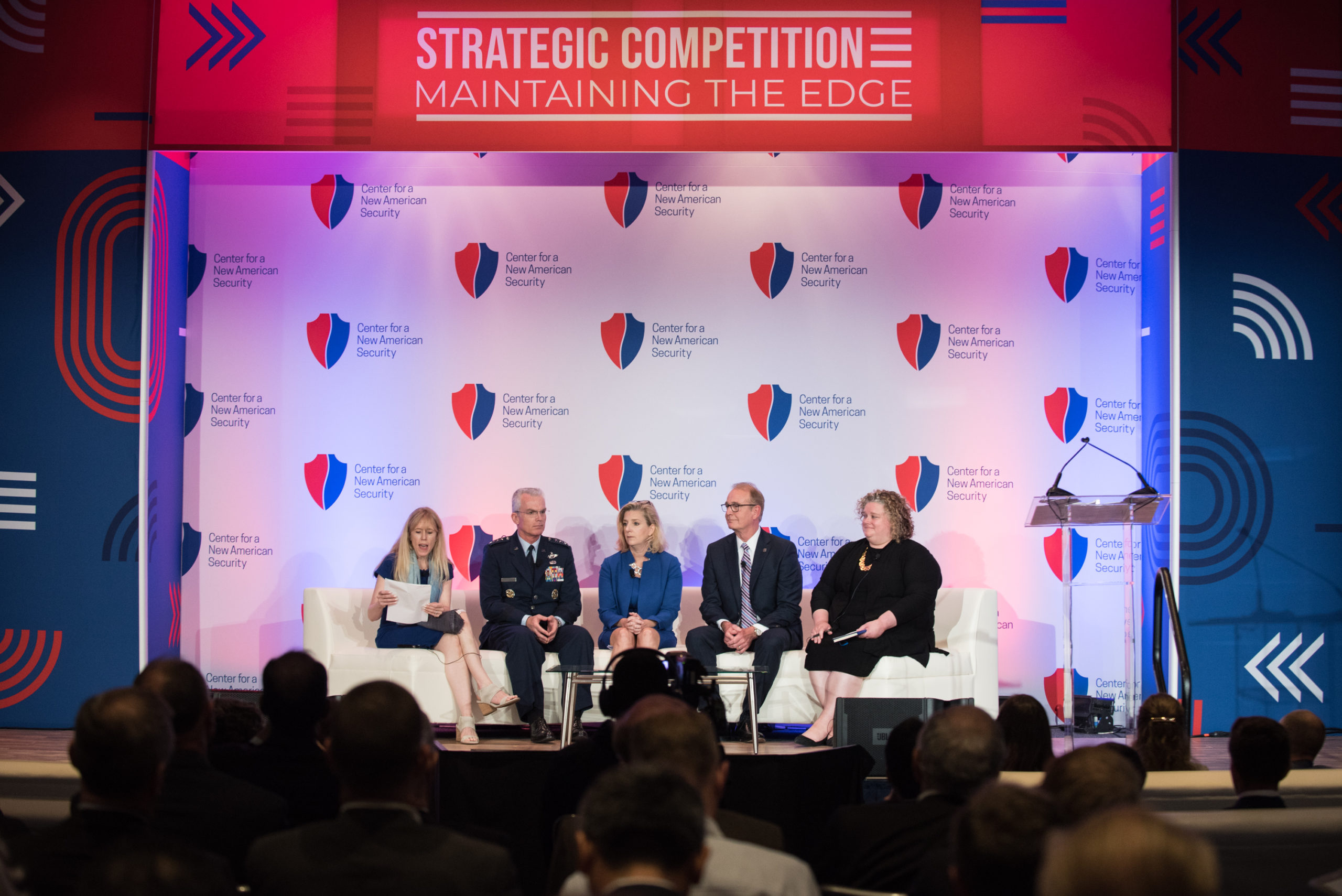FOR IMMEDIATE RELEASE
Date: February 10., 2021
Contact: Brett Heinz, heinz@cepr.net
Washington, DC ― A new report from the Revolving Door Project (RDP) examines conflicts of interest at the Center for a New American Security (CNAS), a Washington, DC think tank from which more than a dozen former staffers or affiliates have been selected to join the Biden administration. The report finds that, despite various public statements to the contrary, CNAS has made multiple policy recommendations that would directly benefit some of the think tank’s donors, including military contractors and foreign governments. Read the full report here.
“CNAS is far from alone among Washington think tanks in engaging in questionable ethical behavior of this variety, and all such behavior is worthy of attention. But the scale and scope of conflicts of interest that appear in CNAS’s work and the influence that its donors may be exerting on policy further highlights serious concerns about political corruption,” report coauthor Brett Heinz said.
The RDP report notes that while CNAS leaders see no problem with taking defense industry money while writing broadly about defense issues, they admit that conflicts arise when the organization talks about specific products produced by organizational donors. Nevertheless, CNAS has violated their own standard by making specific recommendations that benefit its funders on multiple occasions.
In 2018, CNAS released a report suggesting that the US Air Force purchase “another 50 to 75” B-21 bomber jets.” The report did not disclose that the maker of the B-21, Northrop Grumman, was one of CNAS’s largest donors and would stand to gain $33–$49 billion dollars in sales from this recommendation. Yet in the almost four months since this conflict of interest has been identified, CNAS has not added a disclaimer.
In another case, first exposed by The Intercept in 2017, the UAE paid CNAS $250,000 to produce a private “UAE Missile Technology Control Regime (MTCR) Study,” advocating for changes to the legal regime for the export of military-grade drones in the midst of the UAE and Saudi Arabia’s war on Yemen. After receiving approval from the Emirati embassy, CNAS published some of that study’s findings in a public report, urging the Trump administration to “loosen restrictions on drone exports,” and “consider targeted exports of uninhabited aircraft, including armed uninhabited aircraft, to close partners and allies provided that they agree to the principles for proper use.” No disclosure was made of their financial arrangement with the UAE.
“CNAS’s record of producing publications and making recommendations that would directly benefit their donors violate even the organization’s own low standards for what constitutes a conflict of interest,” report coauthor Erica Jung said. “It is alarming that the Biden administration has welcomed so many alumni from an organization so clearly influenced by the corporate sector.”
###
PHOTO: “CNAS 2018 Annual Strategic Competition Conference – 180621-D-SW162-1040 (41131472640)” by Chairman of the Joint Chiefs of Staff is licensed under CC GA 2.0

